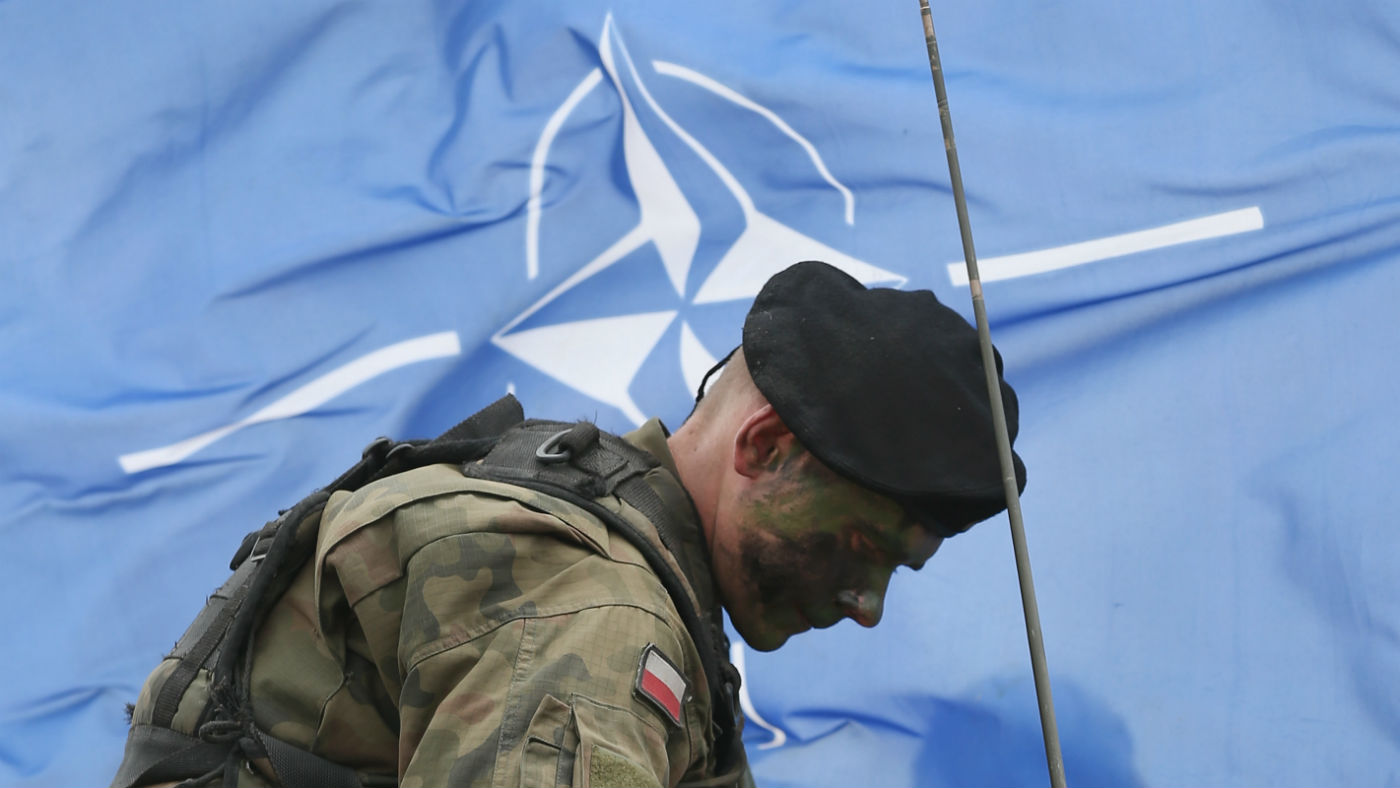What is the point of Nato?
Trump threatens to walk away unless members up spending – but the alliance faces deeper problems

A free daily email with the biggest news stories of the day – and the best features from TheWeek.com
You are now subscribed
Your newsletter sign-up was successful
Donald Trump has threatened to pull the US out of Nato unless other member states up defence spending, sparking a debate about the future of the alliance.
What did he say?
In a stern letter to nine Nato leaders, the US president said he is no longer willing to risk American soldiers’ blood unless other alliance members match his country’s commitment.
The Week
Escape your echo chamber. Get the facts behind the news, plus analysis from multiple perspectives.

Sign up for The Week's Free Newsletters
From our morning news briefing to a weekly Good News Newsletter, get the best of The Week delivered directly to your inbox.
From our morning news briefing to a weekly Good News Newsletter, get the best of The Week delivered directly to your inbox.
Angela Merkel was singled out for particular criticism by Trump, who berated her for setting a terrible example. During her first visit to the White House last year, Trump presented the German chancellor with an invoice for $300bn (£227bn) — the amount by which he estimated Germany had underspent on the alliance over the previous dozen years.
Just four out of 28 Nato members spend the minimum target of 2% of national income a year on their militaries.
What happens next?
The warning comes ahead of a crunch meeting of Nato members next week. “Fears are growing in Downing Street that Trump will use the summit in Belgium to announce a US troop drawdown from eastern Europe to punish the low spenders,” The Sun reports.
A free daily email with the biggest news stories of the day – and the best features from TheWeek.com
During his presidential campaign, Trump branded Nato “obsolete” and his most recent intervention has provoked wider debate both in the US and in Europe about its future.
CNN says “his frustration also seems rooted in a more fundamental hostility to the concept of collective and multilateral cooperation that has united the post-World War II American-led community of democracies”.
How has Europe responded?
In Europe, “Trump’s behaviour has made it harder to make a public case for the transatlantic alliance”, says Andrew Foxall in The Times. His policy of alienating traditional US allies and embracing its enemies “has led Nato members to question whether the US is a reliable ally in the event of Article 5 being invoked - ie in the event of an attack upon a Nato member”.
Article 5 commits all members to “collective defence”, says Nato, which “means that an attack against one ally is considered as an attack against all allies”.
The president has in past suggested he would not automatically jump to the assistance of member nations who were attacked and recently told a Swedish foreign minister he would like America to be able to pick and choose its Nato commitments.
The UK defence secretary is pushing for an increase in British military spending.
Is Nato a historical relic?
Even without Trump, “it was inevitable that Americans would begin questioning commitments abroad and the cost-benefit ratio of alliances like Nato as memories of the horror of World War II fade and the common purpose of the Cold War recedes into history”, says CNN.
But those who argue the defensive alliace is no longer suited to a post-Cold War world are almost always met with the words: Vladimir Putin.
The Russian president has long viewed the fracturing of Nato as a key foreign policy objective, angered by its expansion to include many former Soviet satellite states - despite repeated reassurances it would not do so.
In response, he has adopted an increasingly aggressive stance in Eastern Europe in recent years, most notably in his annexation of Crimea in 2015.
So while Donald Trump’s complaints about Europe's defence spending “may be justified”, says CNN, there are “fears that his hardline approach will backfire and put the alliance itself at risk... a possible precursor to a splintering of the international system that made the United States the richest, most powerful nation in the history of the world”.